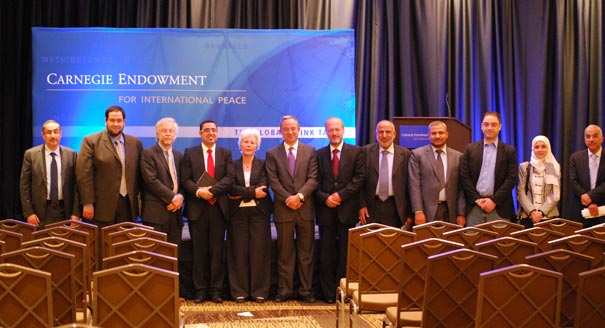Registration
You will receive an email confirming your registration.
Islamist parties have emerged as the strongest contenders in recent elections in Tunisia, Egypt, and Morocco, and are likely continue to do well in future elections in other countries. It is clear that Islamist parties will have a dominant impact on the outcome of Arab transitions, but there is little understanding in Washington of what that will mean for governing.
On April 5, high-level representatives of Islamist parties from Egypt, Tunisia, Morocco, Jordan, and Libya participated in a one-day conference convened by the Carnegie Endowment for International Peace.
Opening Remarks
It is clear that Islamist parties will have a dominant impact on the outcome of Arab transitions, but there needs to be a clearer understanding in Washington of what that will mean for governing.
Jessica Mathews, president of the Carnegie Endowment for International Peace, opened the conference, “Islamists in Power: Views from Within,” which featured top Islamist party leaders from Egypt, Tunisia, Morocco, Jordan, and Libya along with influential members of the business community to discuss political and economic strategies for the Arab region.
